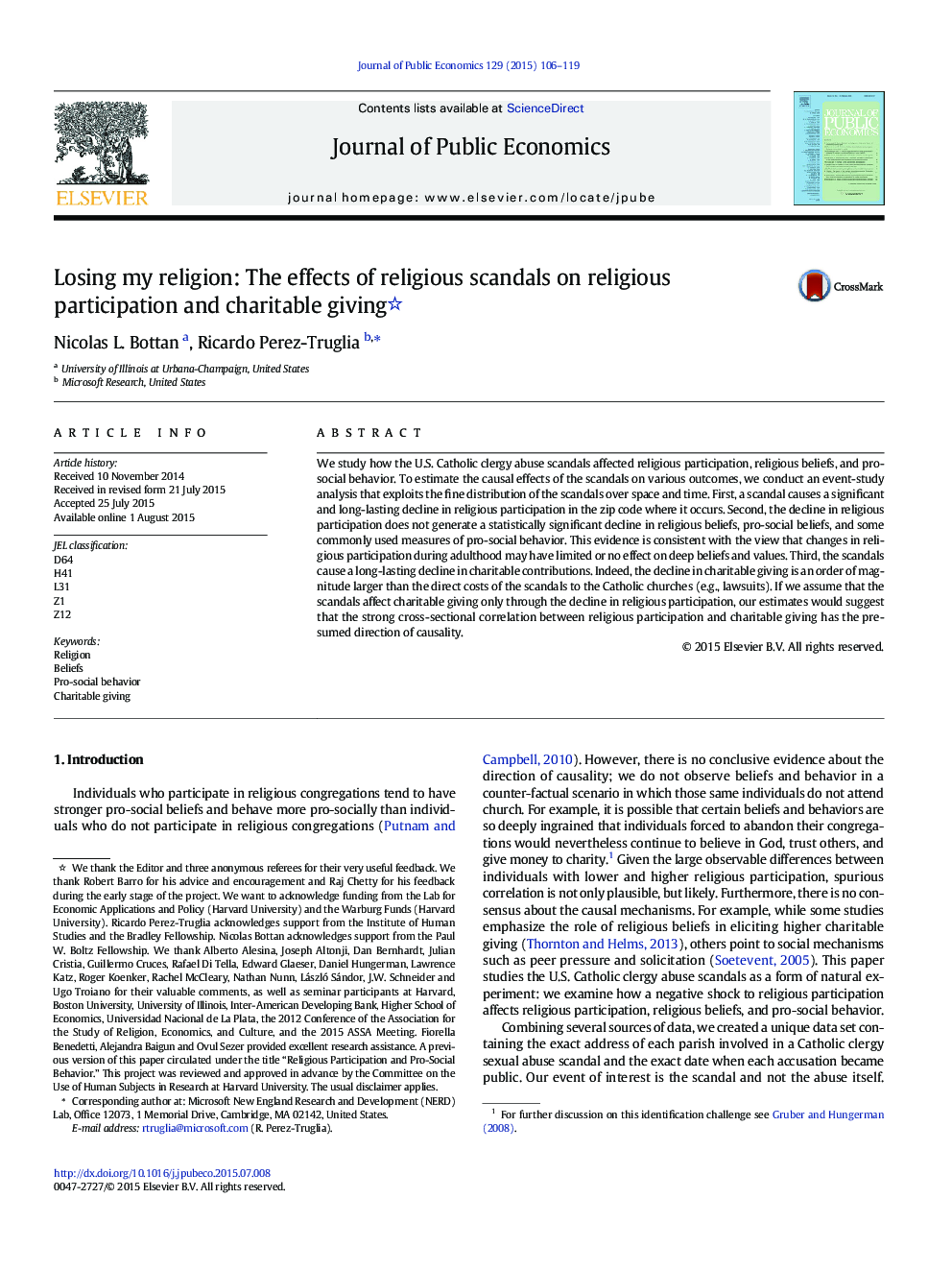| Article ID | Journal | Published Year | Pages | File Type |
|---|---|---|---|---|
| 7369984 | Journal of Public Economics | 2015 | 14 Pages |
Abstract
We study how the U.S. Catholic clergy abuse scandals affected religious participation, religious beliefs, and pro-social behavior. To estimate the causal effects of the scandals on various outcomes, we conduct an event-study analysis that exploits the fine distribution of the scandals over space and time. First, a scandal causes a significant and long-lasting decline in religious participation in the zip code where it occurs. Second, the decline in religious participation does not generate a statistically significant decline in religious beliefs, pro-social beliefs, and some commonly used measures of pro-social behavior. This evidence is consistent with the view that changes in religious participation during adulthood may have limited or no effect on deep beliefs and values. Third, the scandals cause a long-lasting decline in charitable contributions. Indeed, the decline in charitable giving is an order of magnitude larger than the direct costs of the scandals to the Catholic churches (e.g., lawsuits). If we assume that the scandals affect charitable giving only through the decline in religious participation, our estimates would suggest that the strong cross-sectional correlation between religious participation and charitable giving has the presumed direction of causality.
Related Topics
Social Sciences and Humanities
Economics, Econometrics and Finance
Economics and Econometrics
Authors
Nicolas L. Bottan, Ricardo Perez-Truglia,
